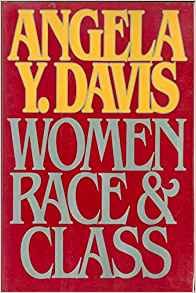

These qualities are epitomized by Harriet Tubman – but they weren’t exclusive to her. It was a tactic employed to remind women of their essential femaleness – which, according to the male supremacist view of women at the time, was passive, helpless, and weak.Īnd yet, enslaved women were anything but weak.īesides the physical strength they acquired from endless hours toiling in the field, the particularly inhumane oppression they endured led them to develop strong personalities considered at odds with the ideals of nineteenth-century womanhood. Rape was a constantly wielded weapon of domination over Black women’s will to resist, and it was used to demoralize their husbands and lovers. But it was also a direct expression of the slavemaster’s presumed right over a woman’s body and life. Although rape was a problem that afflicted women regardless of their class or ethnicity, it plagued Black women in particular, due in part to enduring racist stereotypes that Black women were promiscuous and immoral. The second special abuse that women experienced under slavery was sexual coercion. Slaveowners did not, however, exempt their prized “breeders” from fieldwork if they were pregnant or nursing. Since the international slave trade had been abolished at the beginning of the nineteenth century, slaveholders placed a premium on an enslaved woman’s ability to multiply the slave labor force in the decades leading up to the Civil War. From sunrise to sunset, seven out of eight enslaved people labored under the harsh threat of the whip, with both men and women experiencing regular flogging and mutilations.īut though they were considered genderless on the fields, women suffered two additional oppressions under their slaveholders on account of their sex.įirst, they were classified as “breeders” and were exploited for their reproductive capacity to their biological limits. Though the role of Black women under slavery is typically depicted as a domestic worker, the majority of enslaved women – like their male counterparts – worked in the fields. If you were a woman in the 1800s, you were meant to be a mother, and your essential qualities were considered to be nurturing, gentle, and fragile.

Let’s begin our historical survey of women’s rights at the start of the nineteenth century, back when social roles were clearly divided by sex in the most clichéd of ways.


 0 kommentar(er)
0 kommentar(er)
